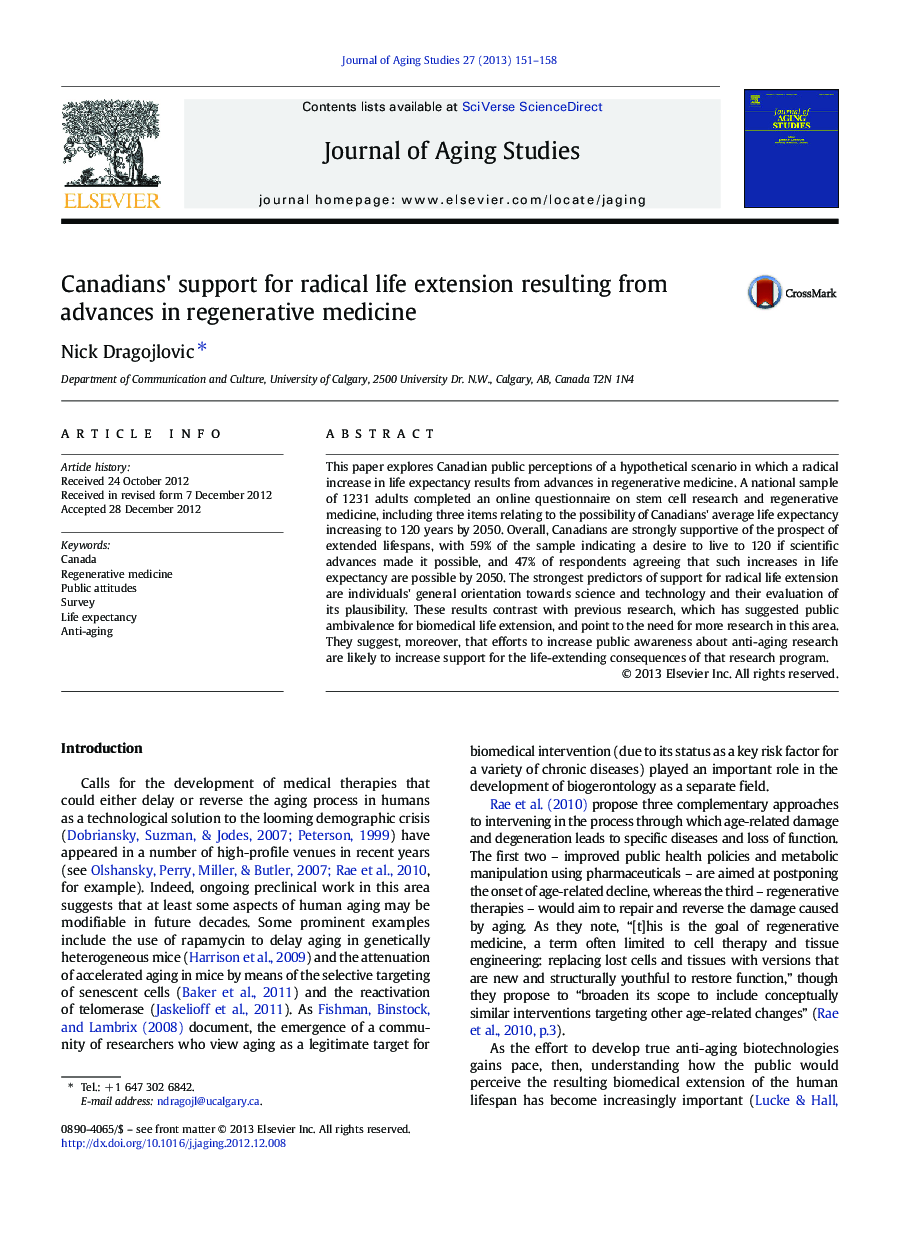| Article ID | Journal | Published Year | Pages | File Type |
|---|---|---|---|---|
| 1081858 | Journal of Aging Studies | 2013 | 8 Pages |
This paper explores Canadian public perceptions of a hypothetical scenario in which a radical increase in life expectancy results from advances in regenerative medicine. A national sample of 1231 adults completed an online questionnaire on stem cell research and regenerative medicine, including three items relating to the possibility of Canadians' average life expectancy increasing to 120 years by 2050. Overall, Canadians are strongly supportive of the prospect of extended lifespans, with 59% of the sample indicating a desire to live to 120 if scientific advances made it possible, and 47% of respondents agreeing that such increases in life expectancy are possible by 2050. The strongest predictors of support for radical life extension are individuals' general orientation towards science and technology and their evaluation of its plausibility. These results contrast with previous research, which has suggested public ambivalence for biomedical life extension, and point to the need for more research in this area. They suggest, moreover, that efforts to increase public awareness about anti-aging research are likely to increase support for the life-extending consequences of that research program.
► Majority of Canadians would want to live to age 120 if medicine made it possible. ► Nearly half of Canadians believe life expectancy of 120 years by 2050 is possible. ► General hostility to technological advances predicts opposition to life extension. ► Belief that civilization is in decline also decreases support for life extension.
